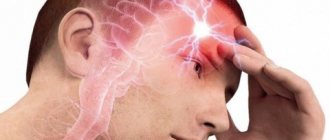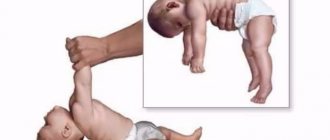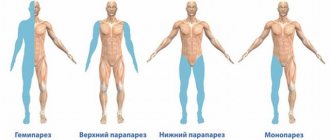Each of us is, to one degree or another, prone to empathy towards others. It is not surprising that we seek to provide some relief to another person's pain if we see that he or she is truly suffering emotionally as a result of some devastating event. However, there is a significant difference between empathy for the problems of others and empathy for those problems. Empathizing, we understand a person’s problems, strive to help and try to do everything possible in our power. In addition, empathy presupposes the ability to feel the inner state of another person, figuratively speaking, to put oneself in his place and see the problem through his eyes. Therefore, in order to really help someone, sympathy alone is not enough, you also need to empathize with his problems with him. However, how to do it correctly? How to express your desire to help without hurting a person’s feelings? What exactly should we say? Should we just say “I'm so sorry…” or “I feel for you” and leave the person to their feelings, or should we do more? Sympathy and empathy are not synonymous, although people often use them interchangeably. When you empathize with someone, you feel what situation they are in. You understand this. This is a mental process that requires certain emotions. Not surprisingly, this is a skill that is not innate, but is acquired with age and maturity. And empathy does not require any knowledge or emotional sense of connection and largely depends on the brightness of mental perception. That's why even a dog or cat can sense when you're sad and try to cuddle you in every possible way to distract you from sad thoughts. Even animals are capable of empathy, but only humans can empathize. Even movie characters can evoke our sympathy. You may feel empathy for someone whose life experience is completely foreign to you. And you can only empathize with a person if in your life you have already encountered something similar to the situation because of which he suffers. American psychologist T. Singer argues that sympathy and empathy should be considered as separate processes, in particular because each of them depends on different neurons and separate parts of the brain. Expressions of empathy are common even in infants. Scientists have found that the “contagious” crying of newborn babies in maternity hospitals is explained by this emotion. When one baby cries from fear, hunger or pain, others begin to echo him. Young children, whose mental abilities have not yet fully developed, are already capable of showing empathy. Thus, it can be argued that the ability to feel empathy for others is inherent in our very nature. But the ability to empathize appears in a person after gaining life experience and various life situations. As one wonderful psychologist said, empathy is the ability to feel someone else’s pain. Therefore, develop these abilities in yourself, help others when they are going through difficult times, because this is the quality that makes us human.
Empathy is an internal identification of oneself with another person, the ability to compassion, which is a gift from above. Among his family and friends, such a person is valued because he is able to understand everyone. What kind of quality this is and how it manifests itself is described in the article.
In religion
In Buddhism
In Buddhism, compassion is the desire for others to be free from suffering and its causes[1]. The 14th Dalai Lama praised the phenomenon of compassion. He characterized it as a source of happiness, as something that promotes better functioning of the mind and gives inner strength.[2] He also identified three types of compassion:
- aimed at relatives and loved ones, based on attachment;
- directed towards suffering beings and based on sympathy for them;
- impartial, based on understanding and respect[3].
Trinley Thaye Dorje pointed out that a lama “must have the qualities of true compassion”, that “real compassion is expressed both physically and mentally”, he sees the main modern problem of humanity as “lack of compassion”, pointing out:
People born into this world have all the means, skills and even wisdom. If we can add more empathy to this, then I think we can make everyone's dreams come true. The future of humanity depends on what we do now. It is determined by our actions and intentions. So the key is compassion and wisdom.
— [4]
.
In Hinduism
Saint Ramalinga Swamigal wrote:
O Supreme Being! You pointed out to me that the Path of Compassion is the only path leading to Enlightenment, While other paths lead to the Darkness of Ignorance. O Supreme Existence!
You pointed out to me that the exceptional power of compassion is its ability to perform Mighty Deeds.
— [5]
.
In Christianity
The Monk John of Damascus attributed compassion to one of the displeasures:
“There are four types of displeasure: grief, sadness, envy, compassion. Grief is displeasure that produces loss of voice; sadness is displeasure that oppresses the heart; envy - displeasure experienced at other people's goods; compassion is displeasure felt at the misfortunes of others.
»
An Exact Exposition of the Orthodox Faith, Chapter XIV. St. John of Damascus.
The Bible, which is the basis of the faith and life of every Christian, encourages all followers of the teachings of Jesus Christ to have compassion for their neighbors.
“...be kind to one another, tenderhearted, forgiving one another, just as God in Christ forgave you” (Eph. 4:32). “Therefore, if one member suffers, all the members suffer with it; If one member is glorified, all the members rejoice with it” (1 Cor. 12:26).
The practical side of compassion was visible in the acts of mercy of Jesus Christ Himself and is illustrated by Him in the famous parable of the Good Samaritan:
“...a certain man was walking from Jerusalem to Jericho and was caught by robbers, who took off his clothes, wounded him and left, leaving him barely alive. By chance, a priest was walking along that road and, seeing him, passed by. Likewise, the Levite, being at that place, came up, looked and passed by.
A Samaritan, passing by, found him and, seeing him, took pity and, coming up, bandaged his wounds, pouring oil and wine; and, setting him on his donkey, brought him to the inn and took care of him; and the next day, as he was leaving, he took out two denarii, gave them to the innkeeper and said to him: take care of him; and if you spend anything more, when I return, I will give it back to you.
Which of these three, do you think, was a neighbor to the one who fell among the robbers?
He [a certain lawyer] said: He showed him mercy. Then Jesus said to him, “Go and do likewise” (Luke 10:30-37).
Psychology and pedagogy. Test 17
1. Unconscious transference to oneself of feelings inherent in another person and inaccessible, but desirable for oneself - this is projection, rationalization, identification, repression
2. Which of these concepts is not a property of human mental states: integrity, mobility, social mood, stability
3. Which educational system does not accept the “carrot and stick” principle: authoritarian liberal democratic permissive
4. What is the name of the property that corresponds to the definition of “comprehension of an emotional state, penetration into the experiences of another person” reflection empathy amnesia suggestion
5. What educational activities allow you to create a new product, come up with a task, transform a product into a new one, formulate a new goal reproductive mental controlling productive
6. The baby's senses begin to function before birth from the moment of birth in the first weeks after birth in the first year
7. Which form of sensitivity is the most ancient: organic form (pain) contact form (touch, smell) auditory visual
8. ________ - a person’s ability to empathize and sympathize with other people, to understand their internal states Empathy
9. Due to what, according to J. Watson, a person develops clearly harmful forms of behavior, for example, alcoholism, smoking due to the creation of conditioned reflex connections that are erroneous from the point of view of adaptation due to too harsh upbringing due to hereditary predisposition all answers are correct
10. How can we characterize neuropsychology - one of the most rapidly developing areas of knowledge in recent years? interdisciplinary special branch of psychology applied branch of psychology fundamental special branch of psychology branch of psychophysiology
11. Which of the concepts correspond to the definition of “tension reduction, relaxation, stress relief, somnambulism, relaxation, atrogenism, introspection”
12. What is stress, a state of joyful anticipation, a state of neuropsychic tension, a state of love, relaxation
13. What definition corresponds to the concept of “willpower”: the ability to mobilize opportunities for long-term overcoming difficulties; the ability to inhibit actions that interfere with the implementation of a decision; the degree of volitional strengthening to achieve a goal; there is no correct answer
14. We navigate the days of the week or the arrangement of words in the dictionary thanks to spatial orientation sequential orientation associative orientation hierarchical orientation
15. What type of memory is the crying of an actress that causes tears in oneself motor musical emotional there is no correct answer
In philosophy
Friedrich Nietzsche paid some attention to the topic of compassion. In the work “Antichrist. A Damnation to Christianity" assessed this phenomenon negatively, considering it destructive:
Compassion is the opposite of tonic affects, which increase the energy of the vital feeling; it acts in a depressing way. Through compassion, strength is lost. Compassion further increases and complicates the loss of strength caused to life by suffering. Suffering itself is made contagious through compassion; under certain circumstances, through compassion, such an amount of damage to life and vital energy is achieved that is in an absurdly exaggerated ratio to the magnitude of the cause (the case of the death of a Nazarene). This is the first point of view, but there is also a more important one. If we measure compassion by the value of the reactions it usually evokes, then its danger to life is even clearer. Compassion generally contradicts the law of development, which is the law of selection. It supports what must perish, it stands up for the disadvantaged and condemned by life; By supporting failures of all kinds in life, it makes life itself gloomy and arousing doubt. […] Schopenhauer was right: compassion negates life, it makes it more worthy of negation - compassion is the practice of nihilism.
A. A. Chanyshev noted that from Kant’s point of view, compassion has limited moral value due to the fact that it is blind, unreasonable, and therefore immoral [6].
What is it for
Mostly people who are able to empathize are simple and naive. But you shouldn't take this as a rule. An empath may well reveal the inner qualities of a person for a specific purpose. For example, to identify the weaknesses of a competitor of the company in which he works.
But you should not consider him a professional psychologist. He is able to get out of a difficult situation, see everything in many ways, but does not know the scientific basis for what is happening, and there is no clear logical plan in his behavior.
People who are capable of empathy and compassion are able to organize supportive groups. The point of creating such a structure is mutual assistance. But in such cases, few people take into account that the meaning of the group is exhausted after working through the unifying situation. Participants become strangers with no common themes.
This quality can help in family, friendships, at work, in unforeseen situations, with random passers-by. In principle, being able to show a sense of empathy without going beyond what is permitted is also an ability from above. After all, interlocutors, seeing a sincerely understanding person, are often inclined to open up and tell him many of their problems.
Notes
- Dr. Alexander Berzin – What is compassion?
- His Holiness the Dalai Lama XIV - Compassion as a source of happiness. Nottingham, England, May 24, 2008
- His Holiness the 14th Dalai Lama - Compassion based on biology and intelligence. Prague, Czech Republic, October 11, 2006
- The key is compassion and wisdom - Mandala Yoga
- Ramalinga Swamigal - Light of Supreme Grace. Canto Four - Website dedicated to Ramalinga Swamigal
- Chanyshev A. A.
Suffering // New philosophical encyclopedia / Institute of Philosophy RAS; National social-scientific fund; Pred. scientific-ed. Council V. S. Stepin, deputy chairmen: A. A. Guseinov, G. Yu. Semigin, student. secret A. P. Ogurtsov. — 2nd ed., rev. and additional - M.: Mysl, 2010. - ISBN 978-5-244-01115-9.
Empathy in children
To check whether your baby is ready to sympathize with others, observe your child's behavior. How does he react if a peer’s toy breaks? There are three options for the development of events: the baby will cry or stroke the “sufferer”, will not pay attention, or will laugh in response. The last two reactions indicate that the feeling of empathy is unknown to your child. Take note and after your child reaches 3 years old, start taking action.
Empathy manifests itself in different ways in children. A sympathetic child will notice the tears, become upset, or also cry. Children who are capable of compassion react to their parents’ intonation and facial expressions. Empathy contributes to the development of useful child skills: adequate emotional assessment of what is happening, caring for nature and loved ones. These qualities are necessary for the formation of a mature and successful personality.
Characteristic
Empathy is characteristic of all healthy people, so it is neutral in nature. But the depth of manifestation of states of controlled empathy can be positive or negative. It all depends on the situation.
Empathy is demonstrated through various signals:
- actions,
- speeches,
- facial expressions,
- gestures
pros
Empathy is necessary for full socialization. The feeling of controlled empathy is formed in childhood, when the child sees the involvement of an adult, parent or other loved one in his condition. This behavior is adopted. Empathic states make it easier to find a common language, to feel involved in the life of a family, community, others, country, nation.
Having empathy brings significant benefits in the profession. The ability to adapt to the state of your interlocutor is important when conducting negotiations, making professional sales, establishing connections and contacts.
Minuses
A high level of empathy often has a negative impact on the bearer of this feeling. Thus, it has been noted that acute empathy increases the likelihood of developing depressive processes, stress, mental disorders and phobias.
A low level of empathy significantly complicates life in the social sphere. People who have a low level of it are more likely than others to encounter problems in communication and building close relationships.
Why is it important to be able to empathize?
Compassion manifests itself in different ways. The level of empathy is influenced by who is in front of us - a close person or a stranger. An empathetic person accepts pain and carries it through. Think about how you react to touching moments in films. Many are not capable. Such experiences relieve stress and help.
The described state is called emotional empathy. Such people react sharply to positive and sad events. A terrorist attack in another country brings tears, victory at the Olympic Games brings joy and laughter. Reacting to the troubles happening all over the world, a person does not control his emotions, his peace of mind leaves him.
In any issue, a golden mean is required. Why is it important to be able to empathize?










